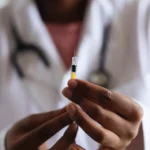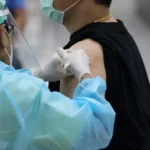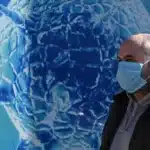Covid
Contents
COVID is known as coronavirus which as we know came from China in 2019, which led to several deaths from 2020 to 2021.
Because it’s highly contagious which makes it more dangerous than other variants like omicron virus.
It primarily affects our respiratory system where it spreads and if a person has a weak immune system then it becomes more harmful to them.
According to a new report on COVID from WHO and other research, it will also come with us in future so taking vaccine doses is vital.
Signs and Symptoms of COVID-19
Several symptoms confirm a person has COVID-19 or covid other variants:
- Fatigue
- cough and dry cough for a long period
- fever
- difficulty in breathing
- sore throat
- loss of taste and smell
- headache
- vomiting
- diarrhea
These are common symptoms that can last for 1 to 2 weeks, but in some people, it is not shown even after they have covid (2)
Moreover, In the new variant symptoms like JN.1 are:
- Stomach issue
- diarrhea
- dizziness
- skin rashes
- redness
Long-term symptoms like:
- Brain fog (where a person is unable to focus)
- fatigue
- irregular heartbeat
Causes of COVID-19
COVID-19 called the SARS-CoV-2 virus belongs to the coronavirus family, and it is highly contagious which makes it more dangerous.
It primarily affects our lungs, then leads to difficulty in breathing, and causes fatal.
Viruses can live for several hours on the surface that they stick on, and COVID-19 lives at different hours at different places (3)
However, the new variant called JN.1 is highly transmissible but fewer symptoms are shown, but more research is still needed.
It is highly contagious means it can easily spread from one infected person to another through sneeze, or cough water droplets.
JN.1 is a modification of the L455S gene, this mutation is considered to make the virus more contagious, but it is not crystal clear.
Who is at High Risk of COVID-19?
Several individuals are at high risk of COVID-19:
- Infected person partner
- weak immunity individuals
- medical issue persons
- children
- older person
- pregnant and breastfeeding women
- lack of vaccination can increase the risk of it
So stay at home, avoid going outside, if it is necessary then take safety precautions, avoid rash areas and maintain social distancing.
If it comes again with the same fatal level as in 2020, then again safety precautions, hygiene, and mask-like tools will come.
New Research on COVID in 2024
Other variants of COVID-19 will come again in 2024 and several research papers indicate that it also come again in future (3)
So we have to take vaccine doses to prevent further variants, and several researchers are working on next-generation vaccines.
New variants continue to appear like JN.1 and BA.5.2 with their different symptoms like stomach issues, dizziness, etc.
However, all these variants after covid-19 variant are seen as less dangerous and have less severe symptoms, but vaccine doses are vital.
Overall, stay safe, stay informed, stay positive, and follow safety guidelines when will gov releases safety rules.
However, more research and questions and answers are still pending on covid several variants.
Precautions & Prevention
It is still present and may come with us in future so follow hygiene and gov safety guidelines.
The best to prevent COVID-19 is to avoid it spreading, for example, if you are infected then isolate yourself, especially from children and older adults.
To avoid spreading make sure to wear a mask in crowded areas, follow social distancing, and take safety precautions.
Vaccination: Take the vaccine dose and boost the dose also which is one of the best and most effective ways to prevent COVID.
A vaccine dose is vital, especially for pregnant ladies, older adults, and medical health conditions person.
Stay updated: Stay updated on new vaccines, treatments, and new variants which will be very helpful against it.
Hygiene: Self-hygiene is a very vital factor in preventing and precautions include:
- Wash your hands for 10 to 20 sec, especially if you are coming from outside
- take a hands-free sanitiser, use alcohol-based sanitiser, and make sure to avoid wounds and sensitive areas.
- make sure whenever you sneeze and cough cover your mouth handkerchief and tissues.
- avoid frequent touching on any surfaces
Social distancing: It was very vital in COVID times, where everyone followed social distancing, staying at least 2 meters apart.
Wearing mask: Wearing fitted and special masks like N95 and KN95 was necessary at that time, along with the purchase of air purifiers.
Avoid rush areas: Whenever possible, people avoid crowded areas, which were more risky during that time with a higher chance of spreading.
Overall, follow safety precautions like maintaining hygiene, stay alert, and stay informed.
These overall reduce the risk of COVID-19 variant spreading.
Down Line
COVID is also known as severe acute respiratory syndrome coronavirus 2 (SARS-CoV-2) which was more deadliest.
Pregnant women are at high risk of COVID-19. Therefore, it is advisable to stay at home as much as possible.
Some people are infected but they show symptoms in a short period, but sometimes symptoms may appear after a while of time.



